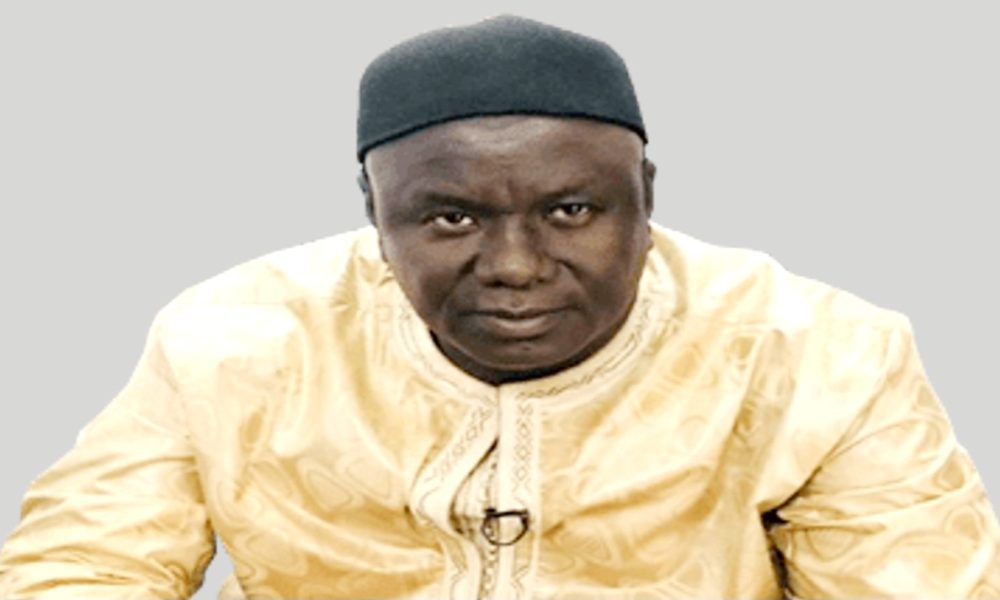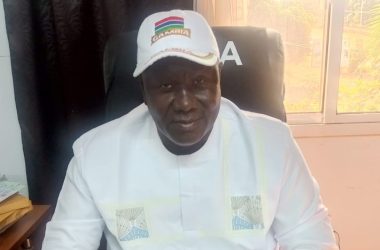The Executive Director of the National Disaster Management Agency (NDMA), Mr. Sanna Dahaba, has revealed that the State disaster management agency’s “comprehensive data collection efforts revealed that as of September, over seventeen thousand people across the country had been impacted by various disasters”.
Speaking on Monday on the occasion of the International Day for Disaster Risk Reduction 2025 on the theme: ‘‘Fund Resilience, Not Disasters”, Mr. Dahaba highlighted that 2025 has seen a decline in the number of people affected by disasters as compared last year.
“This reduction highlights the vital importance of implementing Effective Disaster Risk Reduction (DRR) strategies, which have become increasingly urgent as a means to alleviate the detrimental effects associated with such incidents,” the NDMA boss underlined during the befitting commemorative event held at the NDMA Head Office in Kanifing.
Mr. Dahaba explained that the National Disaster Risk Management policy and strategy has been custom-built to address both the prevention of new risks and lessening of the negative impact of the existing ones.
“It places a strong emphasis on adopting proactive measures aimed at tackling the fundamental causes of exposure and vulnerability within communities,” he explained.
“This strategic shift underscores the government’s unwavering commitment to minimizing disaster risks through an array of initiatives. Key components of this approach include the enhancement of infrastructure, which is critical for withstanding potential disasters, as well as the promotion of community resilience, empowering residents to better prepare for and respond to adverse events.”
Mr. Dahaba pointed out that in addition to this gain, significant investments “are being made in improving preparedness and response systems, ensuring that communities are equipped with the necessary resources and knowledge to face emergencies”.
Earlier in his statement, the NDMA boss acknowledged that the International Day for Disaster Risk Reduction “presents a vital opportunity to foster a global culture that prioritises risk awareness and emphasises the importance of disaster preparedness within communities and governments alike”. He added: “The IDDRR not only showcases the progress that has been made in mitigating disaster-related losses but also underscores the urgent necessity for increased financial investments and the enactment of integrated policies aimed specifically at risk reduction.
“These efforts are aligned with the objectives outlined in the Sendai Framework for Disaster Risk Reduction 2015-2030, which aspires to dramatically reduce the loss of lives and livelihoods caused by disasters through comprehensive and strategic planning.”
According to Mr. Dahaba, this year’s theme “serves as both a reminder and a clarion call to action for governments and their partners embroiled in disaster risk reduction initiatives”.
“It highlights the critical importance of allocating resources towards building resilience within our communities rather than merely responding to disasters after they occur,” he pointed out.
He underlined that disasters can have wide and far-reaching impacts on communities.
“It is important to recognize that in The Gambia, the impact of disasters on communities can be utterly devastating. Such events often result in extensive infrastructural damage, leading to significant economic challenges that can take years to overcome.
Tragically, these calamities can also result in the loss of lives, forever altering the fabric of affected communities,” he lamented, adding, “Disasters disrupt daily life and hinder development, creating a host of long-term challenges that exacerbate existing vulnerabilities among those impacted.
It is paramount that we come together to support initiatives that not only prepare for the fallout of disasters but also proactively address the underlying risks that make our communities susceptible. By fostering a culture of awareness, preparedness, and resilience, we can work toward a safer and more sustainable future for all.”
According to the head of the national disaster management agency, the 2025 International Day for Disaster Risk Reduction (IDDRR) “emphasises two crucial calls to action: Increase funding for Disaster Risk Reduction (DRR)” and ensuring “Risk Informed and Resilient Investments”.
“We must allocate more resources for proactive disaster risk initiatives in national budgets and international assistance to prepare for and mitigate disaster impacts,” he underscored. He continued: “Development initiatives in both the public and private sectors should incorporate disaster risk assessments, integrating resilience into planning to ensure economic viability and sustainability. Addressing these areas can reshape disaster risk over the next five years of the Sendai Framework implementation. I urge government, development partners and stakeholders to increase investments in DRR strategies as we collectively strive for a safer, more resilient future.”

Mr. Dahaba expressed “heartfelt gratitude” to the Office of the Vice President “for its unwavering support of the NDMA”. “I also extend my thanks to the WACA project under the Ministry of Environment, Climate Change and Natural Resources for funding this significant commemoration. Without your assistance, it would have been challenging to honour this day in such a meaningful way,” he acknowledged.
“Additionally, I would like to thank all our partners for their steadfast support in complementing the government’s efforts. It is crucial to emphasise the necessity for continued and increased investment in building resilience. I particularly encourage engagement from the private sector, as their involvement can significantly enhance our ability to respond to these challenges,” he concluded.





